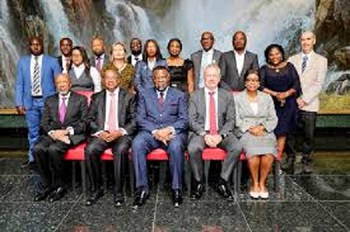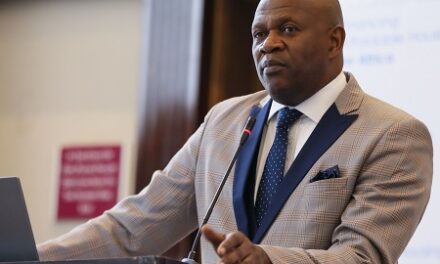
The High-Level Panel on the Namibian Economy (HLPNE) has recommended that the Government should provide money to boost production in poultry, charcoal and livestock-feed production in order to create employment opportunities.
The panel recommended that this should be done as soon as 21 March 2020.
The panel consisting of entrepreneurs and experts on the Namibian economy was appointed by President Hage Geingob and commissioned on 21 March 2019 for a one-year period with the mandate to analyse the state of the Namibian economy and provide evidence-based recommendations that would result in the country’s economic revival.
The panel submitted two reports and sets of recommendations to the Presidency last year. On 25 February 2020 it provided the final report and set of recommendations.
In this final report which was made public on 12 March 2020 the panel has made many recommendations on various sectors of the economy such as housing, public enterprises, public procurement, new green economy, and others.
Specifically on employment creation efforts the report recommends that some urgent actions should be taken in order to solve the problem of high unemployment in the country.
“The unemployment rate stands at 33.4%, but youth unemployment stands at 46.1%. More efforts need to be made to address the sources of unemployment,” says the report.
The report says that since employment creation depends on changes in the productive capacity and supporting Government policies in the economic structures of a country, targeted focus must be on the following:
^ Create platforms for innovation and product development,
^ Incentivise collaboration between universities and the industry,
^ Establish and emphasize mid-to-high level skills development programmes through enhanced coordination in the public sector,
^ Allocate specific funds to boost production in Poultry, Charcoal and Livestock feed production, effective from 21st March 2020,
^ Align policy and tax regimes to better support SMEs and local manufacturers,
^ Promote the immigration of high-skill foreign labour in order to augment the productive capacities of Namibia and facilitate knowledge diffusion and training of our labour force
“Through these interventions, better use of abundant labour resources will be enabled, resulting in strengthening innovation and technology capacities.
“In the long term however, with the advent of the 4th Industrial Revolution, Namibia is at the crossroads to choose to protect labour intensive jobs or to investment in high-level skills, capable of managing artificial intelligence and robotics. Without that choice, the threat for mass unemployment is real,” the report says.
It will be up to President Geingob whether he will implement all the recommendations or only some of them or even none at all during his second term as President of Namibia starting from 21 March 2020.
IN THE PHOTO: President Hage Geingob, with Vice-President Nangolo Mbumba, Prime Minister Saara Kuugongelwa-Amadhila and the team of High-Level Panel led by its Chairman Johannes !Gawanab.







